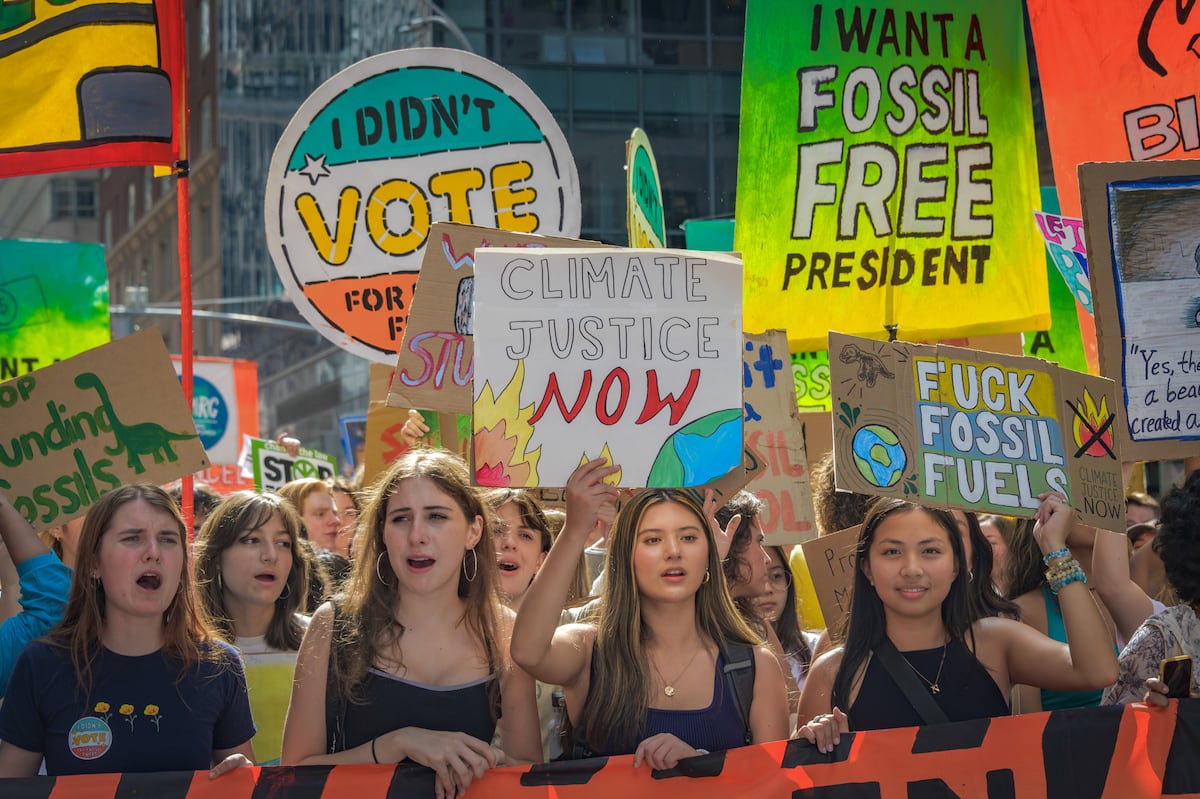New blow to the fight against climate change in the United States.
The Supreme Court has issued a ruling limiting the power of the Environmental Protection Agency (EPA) to impose limits on emissions of carbon dioxide and other greenhouse gases that contribute to global warming.
After the ruling that enshrines the right to carry firearms in public and the one that has revoked the constitutional right to abortion, a Supreme Court with a conservative majority now compromises the climate agenda of the Joe Biden government.
The ruling does not nullify any specific emissions restrictions in force, but rather removes the EPA's authority to impose them for the entire country.
He elevates that power to Congress, where the Democrats do not have a sufficient majority to unblock his legislative proposals.
In addition, they may lose control of the two chambers in the mid-term elections, which are held on November 8 and in which a third of the Senate and the 435 members of the House of Representatives are renewed.
States can pass their own regulations, but many of them are not in favor of ambitious restrictions.
The sentence is a clear victory for the oil and mining companies.
The case
, West Virginia v. EPA,
was originally brought by the States of West Virginia, Alabama, Alaska, Arkansas, Georgia, Indiana, Kansas, Louisiana, Missouri, Montana, Nebraska, Ohio, Oklahoma, South Carolina, South Dakota , Texas, Utah, Wyoming, and the Governor of Mississippi.
Those 19 states were later joined by the state of North Dakota and two historic US coal mining giants, The North American Coal Corporation
and
Westmoreland Mining Holdings.
Those states, many of them rich in coal and oil, raised the following question: “Did Congress constitutionally authorize the Environmental Protection Agency to enact important regulations—including those capable of reshaping the country's electrical grids and unilaterally decarbonizing virtually any sector of the economy—with no limit to what the agency can require as long as it takes into account cost, non-atmospheric impacts, and energy requirements?”
The lawsuit alleged that "the decision has enormous consequences."
He explained that now the EPA "can set standards at the regional or even national level, forcing drastic changes in how and where electricity is produced, as well as transforming any other sector of the economy that emits greenhouse gases."
He added: “The power to regulate factories, hospitals, hotels, and even homes would have tremendous costs and consequences for all Americans.
(...).
Only the court can decide whether the EPA has this unilateral power or whether Congress should assume it."
The plaintiffs rejected “the serious and disproportionate costs for States and countless other affected parties” that the fight against climate change could have.
The Supreme Court has agreed with them with a ruling that disallows the EPA to set limits on emissions.
It's a big win for fossil fuel producers, who have strong allies in Republican ranks.
Shortly after assuming the presidency, President Biden reversed the climate policy of his predecessor, Donald Trump, who took his country out of the Paris Agreement through the back door, in a solitary speech from the Rose Garden of the White House in 2017. In April 2021, Biden pledged to the United Nations that net greenhouse gas emissions in the United States be reduced by 50% to 52% by 2030 compared to 2005 levels, with an eye toward to achieve emissions neutrality by 2050.
The ruling compromises progress in that direction, no matter how hard the Biden government tries to take a few steps.
Last week he announced an alliance with 11 Eastern States to promote wind energy with multi-million dollar investments.
But without limits on emissions, it is of little use.
By stripping power from a federal agency, the ruling may have repercussions beyond its own effect on America's climate commitments.
This decision may be followed by others that weaken other organs of the executive power that try to impose common guidelines for the entire country in matters such as health or food.
The Supreme Court has finished the judicial course with several relevant sentences, among them the one on abortion and the one that has annulled the restrictive legislation on weapons in New York.
In the United States, the position of Supreme Court justice is for life.
When there is a vacancy, the president appoints a new magistrate.
After the Senate blocked an appointment by Barack Obama, Donald Trump managed to appoint three justices, and also relatively young (Neil Gorsuch, 54 years old; Brett M. Kavanaugh, 56, and Amy C. Barrett, 50 ).
With this, the court now has a clear conservative majority of six members to three that will foreseeably last for many years.
[Breaking news.
There will be an update soon]
You can follow CLIMA Y MEDIO AMBIENTE on
and
, or sign up here to receive
our weekly newsletter


/cloudfront-eu-central-1.images.arcpublishing.com/prisa/RFXKLPJ6S5PGXJYGTELOFX5R6E.jpg)












